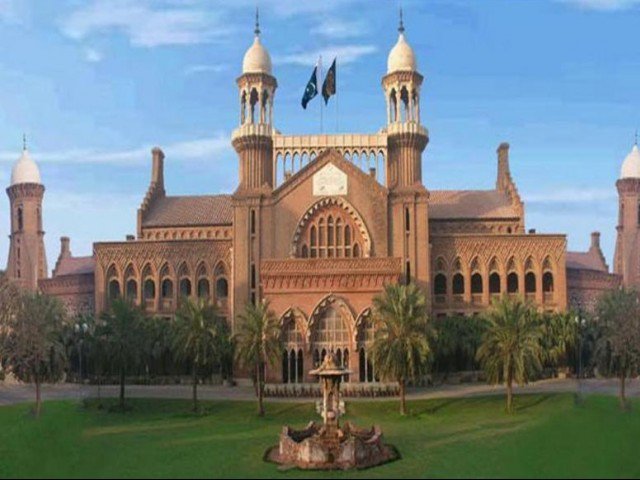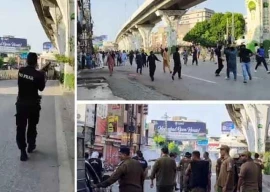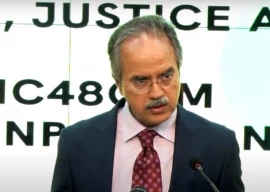
In the past two years, no judge has been appointed to the Lahore High Court (LHC) despite the fact that 20 out of the 60 judicial positions at the country’s biggest high court are lying vacant.
The last time it was in October 2018 that a group of six judges was appointed to the high court.
Interestingly, during this time the LHC started the process of shortlisting names of prospective candidates several times but other members of the Judicial Commission of Pakistan (JCP) – the body that recommends names for appointment of superior courts judges – did not endorse the nominees.
According to sources, the incumbent LHC Chief Justice Qasim Muhammad Khan recently held informal meetings with Chief Justice of Pakistan Gulzar Ahmed and two other top court judges – both JCP members – to discuss names of some nominees but they failed to reach a consensus.
The sources said the LHC chief justice is likely to meet the CJ once again next week to discuss more nominees. It is expected that they will shortlist around one dozen names.
They said the LHC judges are overburdened due to delay in the appointment to the vacant positions. Even around 100 cases are listed before some judges on daily basis, they added.
Senior lawyers urge the top judges to evolve a mechanism to monitor performance of permanent judges of the high courts. They say that though several judges are overburdened but there are judges in every high court whose performance is not up to the mark in terms of disposal of cases.
There are a lot of speculations about the reason for this lack of consensus among JCP members.
Several stakeholders always try to influence the process to accommodate their nominees. The representatives of bars also want the JCP to consider their nominees in the appointment process.
Though it is the prerogative of a high court’s chief justice to initiate names in consultation with a senior most judge but the role of the apex court judges cannot be overlooked in the shortlisting process.
Outgoing Supreme Court Bar Association (SCBA) president Syed Qalb-i-Hassan expressed serious concern over the informal consultations between the LHC chief justice and senior SC judges for shorting listing of prospective judges’ names.
However, one section of lawyers believes that interference of the apex court judges in the process is necessary to ensure transparency. Superior bars have already expressed dissatisfaction over the process of judges’ appointments.
Pakistan Bar Council (PBC) Vice Chairman Abid Saqi said the JCP should not become a judges’ consortium. He demanded that the superior judiciary should also consider lawyers belonging to the minority community for appointment as superior court judges.
“Women lawyers should also be given proper representation in the bench. No woman judge has been elevated so far to the apex court in the last 70 years,” he said.
The PBC vice chairman urged the parliamentary committee on judges’ appointment to make its role more effective in the judges’ appointment process. He criticized the Supreme Court’s judgment in Munir Bhatti case, a verdict which made the role of the committee ineffective.
Saqi said “politically opinionated” lawyers should be considered for appointment to superior courts. He contended that there is no neutral judge.
He urged the parliamentary committee to prepare a questionnaire to gauge the “intellectual commitment” of the nominees to the Constitution, on which he will take oath as a new judge, adding that the same practice is in vogue all over the world.


















COMMENTS
Comments are moderated and generally will be posted if they are on-topic and not abusive.
For more information, please see our Comments FAQ